Our History

On June 21, the Archbishop of Santiago Mariano Casanova publishes the decree to open Universidad Católica. Monsignor Joaquín Larraín Gandarillas is the first president.
The first classes, carried out with 10 professors and 50 students at the Círculo Católico, are offered. The courses range from Faculty of Law and Bachelor in math, which gives way years later to the Engineering and Architecture degrees.
The Engineering course opens, first as part of the Faculty of Physical Science and Mathematics and then turning into the Faculty of Engineering.


Monsignor Joaquín Larraín Gandarillas, founder and first president of the university, dies, and Monsignor Jorge Montes Solar takes over the post.
The university buys its first building on Agustinas street to house the Law, Engineering and Architecture degrees.
The presbyter Rodolfo Vergara Antúnez assumes as president.
The Faculty of Physical Science and Mathematics is created.
The first laboratories of Mathematics and Industrial Chemistry are inaugurated, and soon there will be others for Electric Power, Mineralogy and Physics, in addition to a new library.
On the 30th of November the blessing of the first stone of the Main Campus takes place.
The Agriculture degree is created and begins with five students. Julio Bernard is its first dean.
On September 15, the university’s president, Monsignor Rodolfo Vergara Antúnez, passes away.
Monsignor Martín Rücker Sotomayor, Bishop of Chillán, is chosen to lead the university until 1919, when he resigns over disagreements with Archbishop Crecente Errázuriz.

With the goal of boosting school spirit and promoting the institution's initiatives, the University Magazine comes to life as a space to promote college life and activities.

Workers finish building the Main Campus, known then as University Palace.
Celia Pérez Matus entered the School of Law, becoming the first female student at UC Chile. Her admittance marked a precedent for women's access to our institution. The same year of her graduation (1922), the general admission of female students to the university's different faculties was authorized.

Despite the fact that Archbishop Crescente Errázuriz was in favor of closing the university, in late 1919 he appoints Monsignor Carlos Casanueva as interim president. On February 19, 1920 he was confirmed to the post.

The first university crest was created during the presidency of Monsignor Carlos Casanueva. It has since evolved to its current version.
The Archbishop of Santiago gives his approval to let women attend the university. Five female students enroll in Law.
To safeguard the inspiration of Catholic thought within the university, an Academy of Philosophy is founded to stimulate philosophical and theological studies, relate them to the sciences and defend the Catholic faith in this field.

The Main Campus chapel is inaugurated.
The College of Commerce and Economic Science is created. Today it is known as the College of Economics & Business Administration.
On August 30, the Club Deportivo de la Universidad Católica (UC Chile Sports Club) is founded. President Casanueva was a staunch supporter of the benefits of exercise and sports.

In 1928 UC Chile received the donation of the first observatory located in the country. It had been installed by the University of California in 1903. This observatory allowed an astrophysics group that was incorporated into the Institute of Physics in the late 1960s.
A decree is issued that will give rise to the College of Medicine and Pharmacy, with Carlos Monckeberg as dean. The School of Social Work is created.
On February 2, Universidad Católica is canonically erected and becomes legally linked to the Holy See.
On May 14, a fire burns through the Engineering and Architecture colleges on the third and fourth floors of University Palace. The president asks the Sacred Heart of Jesus, the patron of the university, to help rebuild what was lost. Reconstruction works are finished in less than two years.

As a sign of appreciation for the rapid reconstruction after the fire, Monsignor Casanueva installs the statue of the Sacred Heart of Jesus overlooking the entrance of the Main Campus, where it remains to this day. The work was commissioned to Ernesto Wünsch and is made of reinforced concrete. It has had only one modification since then, as one of its hands was damaged by the 1985 earthquake.
The University creates the College of Theology, whose graduates can teach in the Church’s seminaries and institutes. That same year the first PhD in Theology is offered.

The foundation stone of the UC Chile Clinical Hospital is laid. Construction takes two years and the new building is blessed by the Archbishop of Santiago, Monsignor José María Caro, on November 27, 1939. It would take another year for the hospital to be fully equipped, operational and ready to admit patients. Thus, on October 18, 1940 – on the feast of Saint Luke – the healthcare facility was inaugurated and began functioning ten days later under the direction of Dr. Rodolfo Rencoret.
On July 26, the Student Federation (FEUC) was founded and its first president was the law student José Piñera Carvallo, a member of the Falange political party.
The Institute for Materials Research begins operating at the School of Engineering, which will give rise to the Department of Scientific and Technological Research, known as DICTUC.
Under the direction of Juan Orrego Salas, the university choir comes to life, with over 100 students and concerts in and outside of the University.
Franciscan Eduardo Rosales Rojas becomes the first student to receive a PhD degree from the UC Chile (Theology).
The School of Teaching is born, which will give rise to the current College of Education.
In 1942 the university anthem is performed for the first time at a soccer derby against Universidad de Chile at the National Stadium.

On October 12, 1943, Juan Orrego Salas, Pedro Mortheiru, Fernando Debesa and others stage The Pilgrim. The staging of this play in 1943 is considered the founding moment of the UC Chile theater company Teatro Ensayo. Two years later, in 1945, the School of Dramatic Art was created to train and perfect actors. The original poster for The Pilgrim was lost, but reappeared in 2012 and was reprinted in 2019.
In 1950, the School of Construction was created to establish university credentials for this trade. Its founder was Enrique Hewstone.
On April 26, President Casanueva bought the Isla de Pirque estate from its owner Francisco Huneeus. The objective was to create an Agricultural Experimental School thanks to a donation from the estate of Julio Ortúzar. The estate is still part of the university and today works as an Outreach Center.
The university was asked to sponsor the Normal de San José de la Mariquina school, which will become the Villarrica Campus. It reports to the College of Philosophy and Educational Sciences.

After 33 years, Monsignor Casanueva hands over the presidency to the Archbishop of Concepción, Monsignor Alfredo Silva Santiago.
Professor Jaime Eyzaguirre founded the Institute of History, which in the beginning was placed within the College of Philosophy and Education.
In 1952, the DICTUC purchased closed-circuit equipment and two years later installed an experimental television station on Cerro San Cristóbal. In 1955 it makes its first broadcasts.
In October the decree founding the School of Psychology is approved. Its first dean was the Jesuit priest Hernán Larraín. Previously, in 1954, the Hungarian-Jewish intellectual Bela Székely had been hired by the university to head a Department of Psychology within the College of Education.
The land from the Lo Contador estate in Pedro de Valdivia Norte is acquired by the university, which moves its College of Architecture there.
The School of Sociology is founded and becomes a pioneer in the teaching of this science in the country.
The School of Arts is born in May within the College of Architecture. Among its founders were the outstanding artists Nemesio Antúnez, Mario Carreño, Roser Bru and Eduardo Vilches.
Universidad Católica’s own television station begins broadcasting in April on channel 13.
The School of Journalism opens in a building on San Isidro street. Years later it would move to Oriente Campus and finally to the Main Campus.
As the Main Campus can no longer accommodate so many students, the university decides to create a college town on the lands it owns in Macul. The San Joaquín campus project, by Germán Brandes, was picked. It opened on November 11, 1966.
The Center for Aesthetic Research comes into existence and, two years later, its research and teaching leads to the creation of the Aisthesis magazine.
The Interdisciplinary Center for Regional Studies (CIDU), which will eventually become the Institute of Urban Studies, is created as a planning institute, consisting of Architecture, Engineering, Economics and Sociology.

After a long conflict with the students, Monsignor Alfredo Silva steps down and the Holy See picks a layman president, Fernando Castillo Velasco, for the first time in the university’s history.
The University Workers and Peasants Department, which will eventually become the professional institute Duoc UC, is created.
The Institute of Political Science is founded, as are the institutes of Mathematics, Chemistry and Physics in the new College of Exact Sciences.
The Music Department, founded ten years earlier, is renamed the Institute of Music and established as an academic unit attached to the College of Architecture and Fine Arts.
The Leadership Council elevates the Department of Philosophy to the Institute of Philosophy in November.

The university acquires the convent and school of the Sacred Hearts order and turns it into a new campus.

After the military coup, the military Junta appoints vice admiral Jorge Swett as delegate president.
The College of Social Sciences is created, grouping the schools of Psychology, Sociology and Social Work.
The first Fair of Traditional Crafts is organized in Bustamante park as part of the celebrations for the consecration of the Temple of Maipú.
The UC Chile Theater opens in its current location in Ñuñoa where the Dante movie theater previously stood.
The Colleges of Literature, Biological Sciences, Physics, Chemistry, Mathematics, Philosophy and History, Geography and Political Science are founded.

After the resignation of Rector Swett in late 1984, the doctor and academic Juan de Dios Vial Correa takes over as president until the year 2000.

Pope John Paul II visits the university.
As part of the celebrations of its 100th anniversary, the university creates the Outreach Center and opens the San Carlos de Apoquindo stadium.
The university opens the College of Communication, with journalist Silvia Pellegrini as its dean.
The College of Arts is born on June 8, bringing together the School of Arts, the Institute of Music and the School of Drama.

Dr. Pedro Pablo Rosso takes over as president and launches the General Education Plan, which requires students to take courses from colleges other than their own.
New facilities are built in Villarrica to house growing university activities.
The Leandro Penchulef Museum opens at the Villarrica campus on May 10 with the mission to showcase Mapuche culture.
In March the transfer of the School of Art from Lo Contador campus to Oriente Campus was completed, so that the entire Faculty of Arts was located on the same campus.
The first Country Mission is carried out, with 1,250 young people – Chileans and foreigners – from almost 30 different universities doing missionary work in 29 locations, from Arica to Punta Arenas.
Nearly 700 students enter the College academic program, the only system of its kind in Chilean and Latin American education.
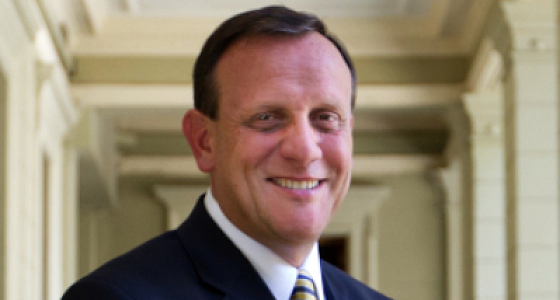
The then-dean of the College of Medicine, Ignacio Sánchez, assumes as president.
The University creates its Sustainability Office, the first of its kind in Chilean higher education.
Proposed by president Ignacio Sánchez, the university creates the first Women and Academia commission. The goal is to brainstorm ideas, guidelines and guidance to develop women’s academic careers at the University.
The Joaquín Gandarillas Infante Foundation provides the university with a valuable collection of works of American colonial art, with more than 600 pieces for its preservation and exhibition. Different exhibitions of the collection are exhibited at the Alameda Outreach Center.
In October Professor Gastón Soublette donates a collection of more than 300 pieces made by the Mapuche, Inca, Moche, Diaguita, Arica, Atacameña, Nazca and Tiwanaku cultures, among others. The Native Peoples collection is on permanent display at Oriente Campus.
The Office of Inclusion is created to group existing admissions, financing and academic support initiatives aimed at helping talented students excel at the University, independent of their socioeconomic situation or any physical handicap.

Pope Francis visits UC Chile.
In April, RCER UC was established to advance field research and actively address the needs of local communities.
In 2018, following a process of participation, collaborative design and competition, ideas, feedback, symbolism, values and school spirit, the UC Chile mascot was created. The chosen mascot was a puma, a mammal indigenous to Chile that is known for its cunning, bravery and autonomy.
In May, the Leadership Council approves the creation of the Office of Gender Equality with the mission to review, promote and implement policies that help close the gap between women and men at the University.

On January 15, the Leadership Council and the university community are informed that Ignacio Sánchez Días has been confirmed as the institution’s president for the 2020-2025 period. The Vatican ratified the December 2019 proposal sent by the Archbishop of Santiago and UC Chile Chancellor, Monsignor Celestino Aós.
UC Chile acquired Beethoven Radio, after it was taken off the air in 2019, and on April 1, 2020, relaunched it on channel 97.7 FM, replacing its historic spot on 96.5 FM.
The worldwide Covid-19 pandemic forced the University to close all its campuses for months. However, this did not prevent work from continuing, and the University made important contributions to the fight against the coronavirus pandemic.
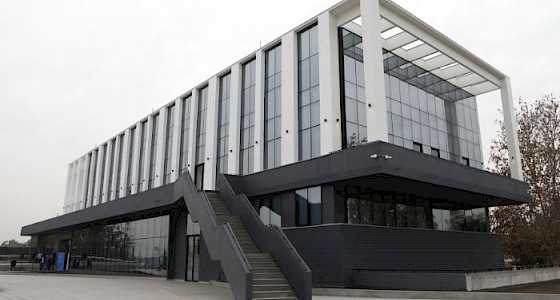
In 2020, the creation of the Veterinary Medicine program was approved, and in 2022, the School of Veterinary Medicine building was inaugurated on the San Joaquin Campus.
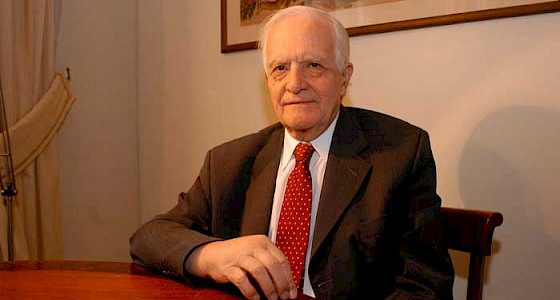
The president emeritus and professor of the Faculty of Biological Sciences, Juan de Dios Vial Correa, passed away on August 18, 2020. He served 3 consecutive terms as UC Chile President, between 1984 and 2000.
UC Chile signed an agreement with the Santa Cruz and Yaconi families to establish the MAVI UC Foundation and continue the legacy of the Museum of Visual Arts (MAVI).
The Huidobro family donated over five thousand of the artist's documents to UC Chile, securing the preservation of his work for future generations.
The program was designed to acknowledge and emphasize cultural diversity as a core element of university life.

In July 2021, the UC launched the international brand UC | Chile. The shield and the acronym UC | Chile were established as the graphic image of the international mother brand to position the institution in the global concert. As the university's full name is difficult to pronounce (Pontificia Universidad Católica de Chile), the positioning and perception of the institution tended to be diluted. The university also defined the need to highlight the country of origin, differentiate it from other higher education institutions in the world that are Catholic, or use the acronym UC.
The institute was established as an interdisciplinary academic unit dedicated to education, research, and outreach, with the mission of fostering ethical discernment in both individuals and institutions.
The Special Education program, Natural Resources Engineering program and Computer Science program were added to the majors offered at UC Chile.
Bachillerato Inicia, a two-year academic program, was launched to provide opportunities for students from technical-professional secondary schools.
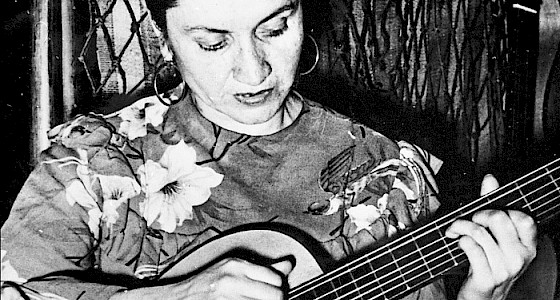
After being given a 25-year loan of 90% of Violeta Parra's visual artwork from the Violeta Parra Foundation, UC Chile inaugurated Casa Violeta Parra in May on the Oriente Campus.
UC Chile presented its Climate Action Strategy for achieving carbon neutrality by 2038. The plan includes 18 projects presented by topic.
As part of Chile's 2023 constitutional process, UC Chile and the Universidad de Chile were tasked by the National Congress with leading the Executive Secretariat for Citizen Participation.
The Center for Dialogue and Peace. was established, inspired by Pope John XXIII's encyclical letter Pacem in Terris. Its mission is to foster social cohesion and coexistence in Chile and the surrounding region.
To strengthen UC Chile's social commitment, the Office of Public Engagement was established under the Office of the Provost for Institutional Management. Its focus is on fostering a bidirectional relationship with society.
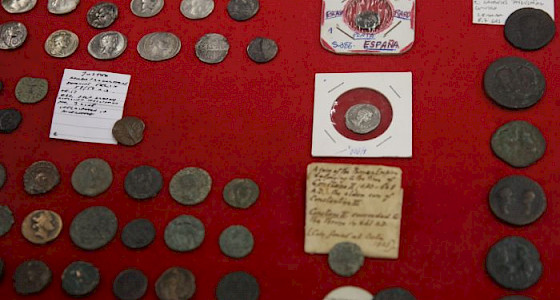
The UC Numismatic Cabinet, the largest of its kind in Latin America, houses over 6,500 coins and banknotes within the San Joaquín Library.
ConectIA was launched as a part of the strategic partnership between UC Chile and Microsoft. The initiative encompasses 31 technological projects aimed at advancing digital transformation through Artificial Intelligence.
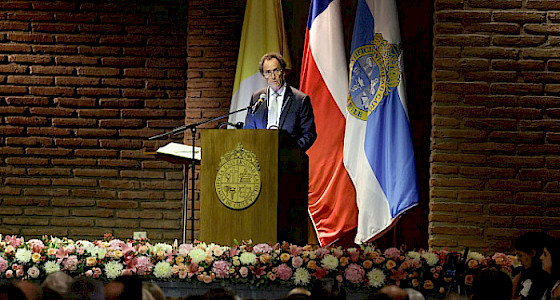
El 18 de marzo, el académico Juan Carlos de la Llera asumió el cargo de rector de la UC para el período 2025-2030.

